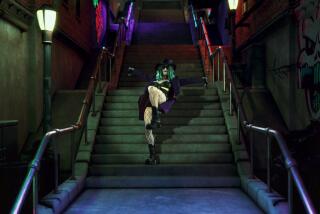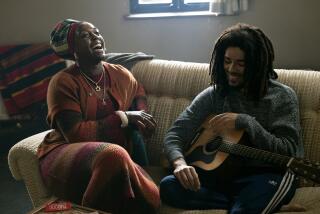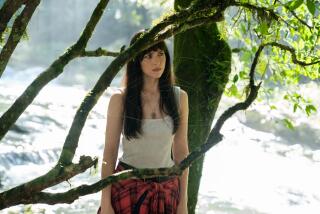Angela Robinson on a superhero’s hidden message of love in ‘Professor Marston and the Wonder Women’
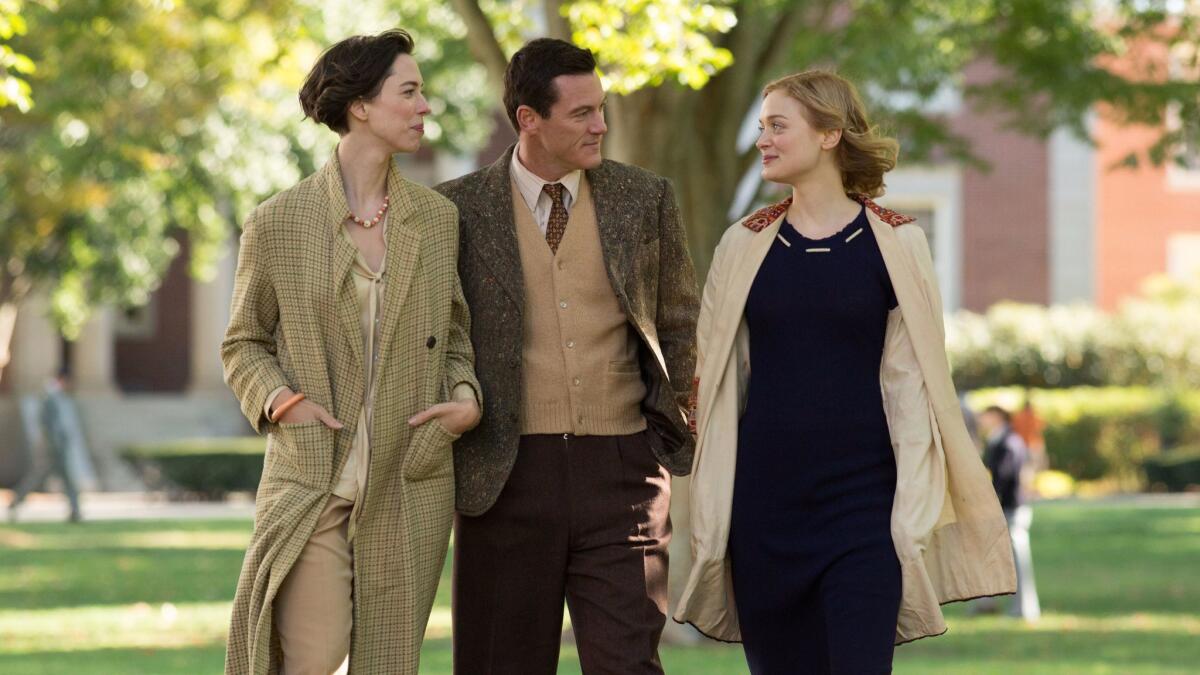
Timing is a funny thing. If noted psychologist William Moulton Marston and his wife Elizabeth Marston had not both fallen in love with the woman Olive Byrne, would he have gone on to create the character of Wonder Woman?
And if writer-director Angela Robinson had not worked for years researching their story so that her film arrived a few months after the Wonder Woman character’s blockbuster solo big-screen debut, would audience interest be as high?
For the record:
9:11 a.m. April 26, 2024An earlier version of this article reported that “Professor Marston and the Wonder Women” would premiere on Saturday night at the Toronto International Film Festival. The movie will be screened on Tuesday night.
These are questions that cannot be answered, of course. But when Robinson’s “Professor Marston and the Wonder Women” premieres Tuesday night as part of the Toronto International Film Festival before opening in October, what will be revealed are details of the three lives that would become intertwined around each other and a fictional creation.
“A lot of people I’ve talked to have commented on the crazy timing that my film and the ‘Wonder Woman’ film are coming out in the same year and did I plan it that way? And the answer is not really,” said Robinson. “Like many independent films, I’ve been trying to make it for a number of years and it kind of all came together. I feel like there’s a harmonic convergence of Wonder Woman-ness.”
I feel like there’s a harmonic convergence of Wonder Woman-ness.
— Angela Robinson on the timing of ‘Professor Marston and the Wonder Women’
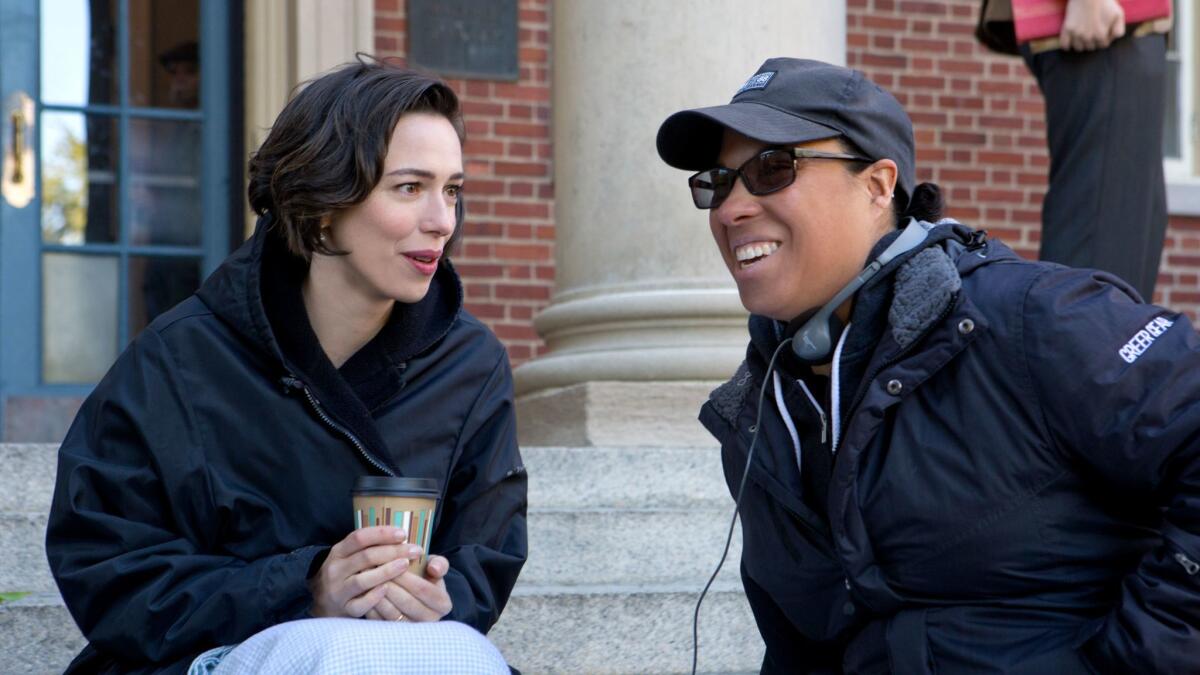
The three central actors — Luke Evans as William, Rebecca Hall as Elizabeth and Bella Heathcote as Olive — evince a mix of screwball savvy, deeply felt emotions and a playful seductiveness. Even the origin of Wonder Woman’s famous rope lasso turns out to have a more complicated, slightly kinky story behind it, and the performances bolster the movie’s unusual tone and the way in which Robinson subtly shifts the perspective of the storytelling from one character to another.
“It’s a great love story,” Robinson said. “They all love each other and then they created the only superhero whose mission is not in a corny way to have people realize that hate is within themselves and that submitting to love instead of hate is the only way we’re going to survive.
“I wanted the audience to be on the ride of what it would be like to fall in love with these people,” she said. “I didn’t want to other-ize their experience, I wanted to make it as romantic and accessible as possible. I didn’t want anyone to say, ‘look at these freaky people into this sex thing and this bondage thing.’ I wanted it to be, ‘I want them to be together, I could see how that could happen and in a different set of circumstances it could happen to me.’ I think the actors felt the same, and they dove in with passion and commitment and emotional honesty, and were just having fun with the love story. And that’s what shines through.”
After following up her 2004 debut feature “D.E.B.S.” with “Herbie: Fully Loaded,” Robinson has worked extensively in television. As an executive producer she wrote and directed on the series “The L Word,” “Hung” and “True Blood,” and was recently a consulting producer on “How to Get Away With Murder.” (“Professor Marston” is produced by Amy Redford and Terry Leonard and executive produced by Andrea Sperling and Jill Soloway.)
Robinson has been researching and writing the story for nearly a decade, long before the Wonder Woman character appeared on-screen in the recent blockbusters “Batman v. Superman: Dawn of Justice” and the summer smash “Wonder Woman.” Though there has been an explosion of books on the subject of William Marston and the origins of the Wonder Woman character over the past few years, most notably Jill Lepore’s 2014 “The Secret History of Wonder Woman,” Robinson began with only one chapter in Les Daniels’ 2000 coffee-table book “Wonder Woman: The Complete History” to go by.
Robinson’s exhaustive research project brought her to not only the original run of “Wonder Woman” comics created by Marston, but also his extensive work as a psychologist and his DISC theory on behavioral traits. (DISC stand for dominance, inducement, submission and compliance. Read into that what you will.)
“For me it made writing the script and making the movie a process of exploring his ideas,” Robinson said. “The characters are a lot of the time wrestling with what I was wrestling with in my own head. His ideas are so contemporary. … So I was immersed in trying to understand how Marston, Elizabeth and Olive came together to make Wonder Woman.”
At first Robinson thought she was exploring the story of Marston, his wife Elizabeth and his mistress Olive. But upon discovering that Elizabeth and Olive stayed together for 38 years after his death, as well as other details of their lives together, she began to reexamine the dynamics between the three of them. The film never explicitly labels any of the characters or their relationships.
“I really feel like they would not have labeled themselves. And a lot of the movie deals with the secrecy that they surrounded their life with in a very active way. I just don’t think they would speak of themselves in any of the contemporary ways we would now, where they could be poly or bi or queer. Personally, queer is the most all-encompassing word that I use in my head to describe them. I think they existed outside of any of these modern identities.
“Part of me just wanted to tell a love story. Wonder Woman became politicized after the fact, but I really wanted to try in the most straightforward way to tell the simplest of love stories between these three people. They have issues with the world over what they’re feeling, but their love for each other was very pure and honest.”
As for her three lead actors, Robinson cast them without ever seeing them interact. She was nervous when they first met for a table read of the script, and then knocked out by the electric chemistry they shared.
“It’s rare that you meet three people who come together who are all as committed,” Robinson said. “It’s just the three of them in so many scenes together. I wanted the drama to come from every little look or touch or thought or how they were reacting to each other.”
Following the success earlier this year of “Wonder Woman,” directed by Patty Jenkins and starring Gal Gadot in the title role, Robinson’s film lands in a very different environment than the one in which it was made. Though the two films share no deliberate connection, it will be impossible for audiences not to want to draw that link or look for ways in which they are in conversation.
“I came at this story as a straight-up Wonder Woman fan. I think she’s incredible. I thought Patty Jenkins’ movie got it 100% right,” Robinson said. “Some people have issues with Wonder Woman, which are just kind of baked in, but I don’t. When I was a kid, she was the only one.
“Wonder Woman is the only superhero whose ideas are founded on love, everyone else is for something else. Batman is there for vengeance, Superman is there for the sense of right and wrong, and Marston thought that the path to peace was love and that women were just inherently more loving and they weren’t inherently violent and anarchic in the way that men were in his psychological studies.
“So he created her to literally spread the message of love, which is what Wonder Woman does. And I think that is so valuable and poignant and necessary. And that’s why I think she’s hit such a chord. Literally her message is powerful.”
SIGN UP for the free Indie Focus movies newsletter »
Follow on Twitter: @IndieFocus
ALSO
From ‘The Big Sick’ to ‘Brigsby Bear,’ what does box office mean for indie movies these days?
Ben Stiller draws from his experiences as both a father and a son in two new character-driven films
Aubrey Plaza takes charge by losing control in ‘Ingrid Goes West’
More to Read
Only good movies
Get the Indie Focus newsletter, Mark Olsen's weekly guide to the world of cinema.
You may occasionally receive promotional content from the Los Angeles Times.
